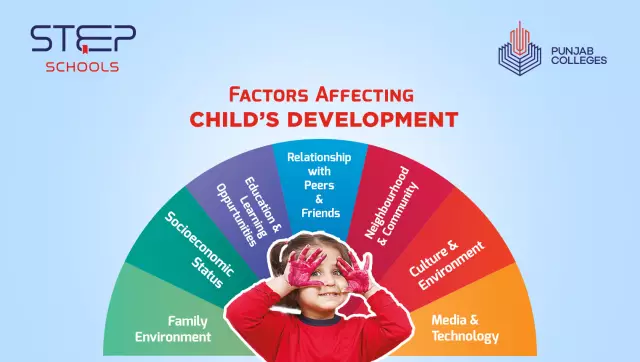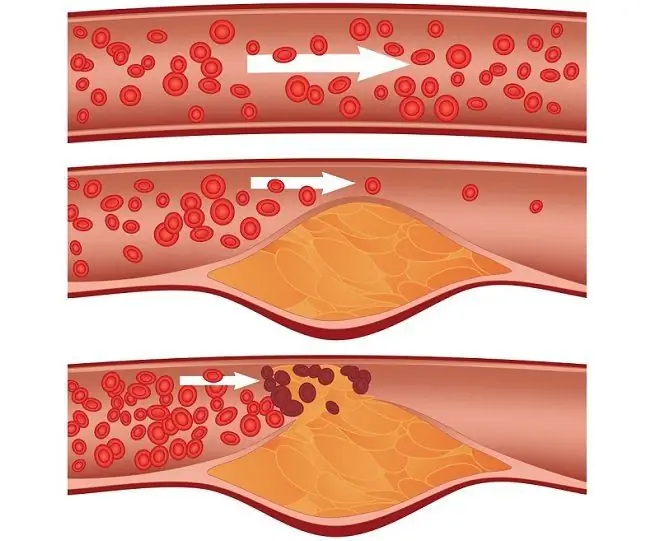- Author Rachel Wainwright wainwright@abchealthonline.com.
- Public 2023-12-15 07:39.
- Last modified 2025-11-02 20:14.
5 main factors in the development of neurosis in a child
Neurosis is a pathology of the nervous system, in which there are deviations in the higher nervous processes. Most often, children are susceptible to neuroses due to the still not strong psyche. An unhealthy, hostile atmosphere in a team, a family, a strong and sharp shock, and many other factors affecting a small person who has not yet learned to overcome stress can become prerequisites for the appearance of such disorders.
How to determine the presence of neurosis in a child? Common signs of mental disorders in childhood are fears (fear of the dark, animals, strangers), tantrums, sleep disturbances, including sleepwalking, enuresis, stuttering, nervous tics (twitching of the eyes, frequent blinking, repetitive movements), moodiness, irritability, tearfulness … Often parents, due to their employment, do not notice the symptoms of neurosis or do not attach importance to it, not counting the disease. Indeed, neuroses in most cases are reversible, but only if corrected by parents or a psychotherapist. If you do not help the child in overcoming a neurotic state, there is a risk that it will affect physical health (in the form of problems with metabolism, work of the cardiovascular, autonomic systems, etc.),and will also cause negative personality changes.
Let us consider five main factors that can trigger the mechanism of the formation of a neurosis in a child.
Lack of daily routine
Chaos and unpredictability are considered the main enemies of a child's health, both physical and mental. The lack of a regime is a source of stress for a fragile psyche, and this statement is more than true for adolescents. Many of the child's nervous processes are still unstable, and the cells of the cerebral cortex are easily depleted. Late going to bed along with early waking up, lack of a daily routine cause increased fatigue, slow recovery after exertion, and hence increased irritability, emotional instability. If activity and rest are not regulated in accordance with age (long-term activities, games, entertainment, etc.), they are accompanied by constant intense work of the brain, a large waste of nervous energy, which, even in the absence of other unfavorable factors, can lead to neurosis.
With a clear daily routine, the body independently adjusts to the upcoming activity, which is performed easily, efficiently and does not cause mental overstrain.

Source: depositphotos.com
Changing your lifestyle
A sharp change in the environment - the way of life (from measured to active), children's collective (school, kindergarten), place of residence, family life (birth of a brother or sister, appearance of a stepmother or stepfather) - can also become a starting point for the development of nervous disorders in a child. Most often, neurosis is formed by a combination of several factors - for example, moving and changing schools, moving and the appearance of a new member in the family. The most susceptible to neurotic disorders are children from disadvantaged families who do not receive the help and support of their elders.

Source: depositphotos.com
Psychotrauma
Psychotrauma refers to situations in a child's life that leave a strong negative imprint on his psyche. This is a fire, natural disaster, divorce of parents, an accident, strong fears and other acute situations that can later transform into phobias, complexes, attacks of panic attacks, etc. To correct severe psychotraumas in order to avoid undesirable consequences, the help of a psychotherapist is required.

Source: depositphotos.com
Wrong parenting model
The wrong position of parents in upbringing is a common cause of a child's neurotic reactions, and the problems associated with this can persist throughout life. According to psychologists, the most negative parenting models for the child's psyche are:
- a model of rejection, that is, a demonstration to the child that his appearance created additional difficulties, that they wanted a boy, but a girl was born, etc.;
- model of overprotection - excessive solicitude, the prohibition of the child to commit independent acts. As a result, before starting any business, he experiences fears, doubts, fears;
- authoritarian model of education. Unwillingness of parents to take into account the opinion of the child, suppression, humiliation, physical punishment;
- model of permissiveness. Lack of norms of behavior and order within the family, control of the child's activities, as a result of which he does not feel the difference between "good" and "bad", is disoriented morally.
In addition, the difference in parenting approaches to upbringing affects negatively the child's psyche, for example, when the father prefers to bring up the child using authoritarian methods, and the mother applies the principles of permissiveness. Excessive cruelty, rudeness, conflicts in the family also become a heavy burden for the child, providing a predisposition to the appearance of neuroses and subsequent mental disorders.

Source: depositphotos.com
Features of the character of the child
It is a well-known fact that parenting methods that are acceptable for one child will absolutely not work for another. The barking of a dog for one will become just a sound stimulus, while for another it will start the formation of neurosis, and each subsequent meeting with the dog will only aggravate the negative reaction. It is believed that children with a melancholic type of temperament are most susceptible to neuroses - sensitive, touchy, in need of increased attention and care. For such children, strict methods of education, especially physical punishment are contraindicated, cause enormous damage to the psyche. However, physical punishment is contraindicated for everyone.
Children with pronounced leadership qualities are no less vulnerable. Guys with their own opinion, independent position on each issue react hard to both parental dictatorship and overprotection. Restriction of independence in any manifestation in such children can become fertile ground for the formation of neurotic reactions.

Source: depositphotos.com
In addition, weakened, often ill children, who often feel helpless, find it difficult to tolerate mental overload.
To prevent the appearance of neuroses in children in any difficult situations (and in fact they cannot be completely avoided), psychologists advise parents to create a friendly atmosphere in the family that contributes to the formation of a healthy and strong psyche of the child. It is also important not to neglect general health promotion - observe the daily routine, eat right, spend time in the fresh air, engage in non-debilitating physical activity.
YouTube video related to the article:

Maria Kulkes Medical journalist About the author
Education: First Moscow State Medical University named after I. M. Sechenov, specialty "General Medicine".
Found a mistake in the text? Select it and press Ctrl + Enter.






